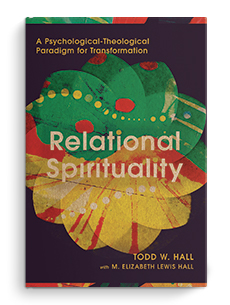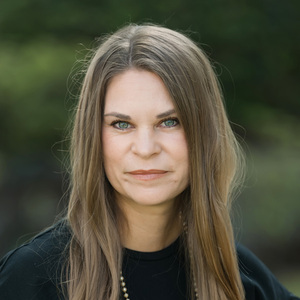As society has increasingly become socially fragmented and polarized, more Christians are feeling disconnected and struggling to grow spiritually. The Covid-19 pandemic has further contributed to a sense of isolation.
“Loneliness is a growing health epidemic,” former U.S. Surgeon General Vivek Murthy wrote in a recent Harvard Business Review article, noting that despite being more technologically connected than ever, rates of loneliness have more than doubled since the 1980s.
This growing problem of loneliness and disconnection has profound implications for the church, according to Rosemead School of Psychology professor Todd W. Hall. In short, Hall’s research shows that meaningful, authentic relationships — with God and with others — are vital to spiritual growth. The more fragmented and individualistic we are, the less likely we are to experience sanctification and spiritual transformation.
So, what is the way forward? How can Christians grow spiritually in a disconnected age? What are characteristics of spiritual communities that foster transformation? How can Christians grow when historical models of spiritual transformation don’t seem to work?

For these and other questions, Biola Magazine reached out to Hall, whose new book (with professor M. Elizabeth Lewis Hall as a contributor) Relational Spirituality is the culmination of over a decade of writing and research. In the book, he integrates insights from multiple fields, supported by both ancient wisdom and cutting-edge research, presenting a new relational spirituality paradigm of spiritual transformation.
Is social disconnection a new problem in light of Covid-19?
The Covid-19 pandemic has put a spotlight on the disconnection and fragmented reality of today’s society. However, signs of a connection crisis were present prior to Covid. The broader social context of the past 50 years has brought a sharp increase in loneliness and mental health issues such as depression and anxiety, and a corresponding weakening of the family unit and communities. These trends have had a negative impact on believers’ spiritual development. Within many sectors of the evangelical movement there is a growing recognition that our conceptual models of spiritual transformation are not addressing these paramount issues. There is a long-standing assumption that acquiring explicit biblical knowledge will, by itself, lead to spiritual maturity. This assumption gets to the heart of the problem the book addresses: a rationalistic paradigm of knowing God, ourselves and others.
How do you propose to address our social and spiritual disconnection in order to grow spiritually?
While there are ongoing problems caused by a rationalistic paradigm of knowing God, this is not the end of the story. In recent decades a new relational paradigm of human and spiritual development has been emerging from multiple fields. There is now a critical mass of evidence. When we synthesize recent insights from fields such as trinitarian theology, spiritual theology, attachment theory, affective neuroscience, emotion theory and interpersonal neurobiology, to name a few, we see common findings that converge on one unified reality and one big idea: human beings are fundamentally relational, reflecting the relational nature of our Triune God. This critical mass of evidence points to a Relational Spirituality (RS) paradigm.
In a nutshell, how would you describe the spiritual transformation model you developed?
We grow, heal and learn to love through relationships, and in this, we reflect the relational nature of our Triune God. The RS model starts with the overarching idea that human beings are fundamentally relational — that we develop, heal and grow through relationships. From there, the model articulates three aspects of the RS paradigm: the nature, goal and process of spiritual transformation. In the book, I share evidence as to how we are born pre-wired to connect relationally in general, and specifically in attachment relationships, and propose that loving presence is the relational goal of spiritual transformation.
What makes the Relational Spirituality transformation model within your book unique?
What is distinctive about the overall framework, in a broad sense, is that it weaves together deep relational principles from psychology and theology into a unified whole, referred to as relational spirituality. Expanding on that, it draws on attachment theory and affective neuroscience, among other fields, to provide robust evidence for the relational nature of humans in general and of healing, change and growth in love in particular.
The concept of relational knowledge in this model is particularly distinctive. There are two types of knowledge: explicit (conceptual) and implicit relational knowledge. I argue that both forms of knowledge are important and reinforce one another in the sanctification process. Having said that, I suggest that implicit relational knowledge is especially important because it is the way of knowing that transforms our relationships with God and others. Put differently, relational knowledge is the “code” in which relational maturity takes place.
How can Christians implement this form of spiritual transformation today?
Ministry training needs to focus on relational experiences (with God and others) that transform our souls, and conceptual knowledge should be tied to this purpose. We need to discuss, address and grapple with attachment issues and patterns as much as we can within an educational and training context. As one example, I have my graduate psychology students complete a soul project in which they reflect on their attachment issues with respect to God and others. We create space to discuss this in class, which I think helps students to not feel so alone in their struggles. I try to provide encouraging input on their papers and meet with students who want to discuss these issues in more depth. It is often difficult, but almost every student reports it to be a deeply meaningful experience.
Likewise, in our churches, we need to address the profound importance of attachment issues to our spiritual lives. So many more people today are hurting, including those in our pews. We cannot expect that years of emotional struggles will be resolved in a short period of time with strictly head knowledge of doctrine. And we cannot expect that these issues will not impact people’s spiritual lives. All of these issues affect our ability to relate to others, and ultimately to love. And (relational) spirituality is our love for God and others, empowered by the Holy Spirit, through the atoning work of Christ on the cross. We need to continue to develop ways to facilitate new experiences that promote secure attachment to God and others. This starts with the lens we bring to Scripture, and carries through to what we emphasize in our teaching, how we teach and how we model relationships within our communities. We need to embrace the messy relational process that is spiritual transformation. We need to understand and embody the notion that we are loved into loving. This will happen in relationships — in the context of community — that are real and authentic. This will look different in different cultures, traditions and communities, but the common thread will be the love of our triune God.
What will believers gain from implementing the Relational Spirituality model?
Changing the world for Christ starts with each one of us. Likewise, facilitating others’ spiritual growth starts with us. First and foremost, then, I hope this model will help believers gain a deeper understanding of the relational process of spiritual growth and insight into their own relational story as they enter more deeply into this process. I hope readers will understand their own attachment history, how this impacts their spirituality, and how they can foster more secure, healthy relationships in their lives. My ultimate hope is that this book will play some small role in helping readers to be loved into loving.
The Expert
Todd W. Hall ('91, Ph.D. '96) is a clinical psychologist and professor of Psychology at Biola's Rosemead School of Psychology. He is a faculty affiliate at the Harvard Human Flourishing Program at Harvard University and a founding partner at Flourishing Metrics. His newest book is Relational Spirituality: A Psychological-Theological Paradigm for Transformation (IVP Academic, May 2021).
 Biola University
Biola University




